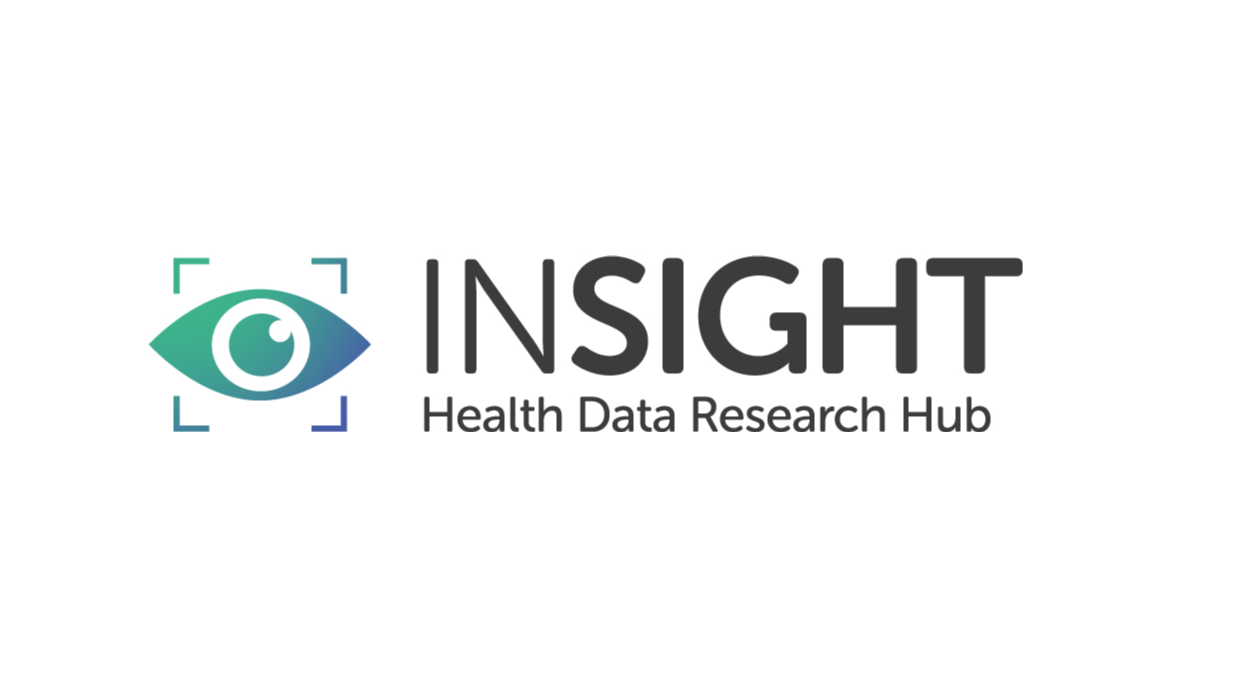National Eye Health Week! Meet the Hubs: INSIGHT - The Health Data Research Hub for Eye Health
24 September 2019 | Author: Alastair Denniston, Co-Director of HDR UK Midlands and Consultant Ophthalmologist
Guest Blog: Professor Alastair Denniston, INSIGHT Hub Director
The eye is unique. Stunningly beautiful, and fascinatingly complex, it has two critical functions for our health and well-being. Firstly, it allows us to see out, enabling us to gather visual information on the world around us. Secondly, it allows others to see in, enabling them to gather health information on the world within us.
Most people take their vision for granted. But every day, in my role as an eye doctor, I see people who are losing their sight. To tackle this problem we want to be able to diagnose earlier, get treatment started faster, and know exactly which of the available treatments will be most effective. And I want to be able to do this not just for one patient, but for all patients.
This is a ‘big’ problem. Hospital eye services are the busiest out-patient speciality in the NHS, accounting for around ten million visits per year. In the UK, more than two million people have some degree of sight loss, and more than a third of a million people are officially registered as having significant sight impairment (‘partially sighted’ or ‘blind’).
But what if the very scale of the problem also provides the solution? What if we could harness the experience of patients from across the UK to ensure that everybody learns from this collective ‘real world’ experience. With support from patients and the public, the use of anonymised data can be safely and securely used to provide incredible insights into our health. This approach benefits from ‘big data’ – and the ‘bigger’ the data, the greater the opportunity. The Health Data Research Hubs, recently announced by HDR UK, demonstrate this opportunity to build centres of excellence that maximise the insights and innovations developed from this health data.
INSIGHT is the Health Data Research Hub for eye health. We are using the power of large scale data and artificial intelligence to enable researchers to tackle blinding diseases, and unlock new discoveries into our general health, across common conditions such as diabetes and dementia.
Eye health has a particular opportunity here, and is well-suited to being a test-bed for the development and application of artificial intelligence-based diagnostic solutions decision support and other interventions into the NHS. Eye health data is collected in a standardised way compared to many other medical specialities, with the commonest eye diseases having a high dependency on imaging that provide a rich data source within a framework that can be linked to other types of health data.
Although there is much still to do, we have already demonstrated how INSIGHT can be transformational for health data research in eye health. We have established a database with multi-million labelled scans within the NHS at Moorfields Eye Hospital, London. We have now linked these images to both ocular and systemic disease, such as with our exciting ALZEYE programme which evaluates how routine eye scans can be used to diagnose dementia. We have also shown how the NHS and the tech industry can work together to bring benefit to patients and value back to the NHS, notably through developing the world’s most advanced diagnostic algorithm for sight-threatening disease, capable of matching or even surpassing human experts.
As Director of INSIGHT, I am proud to be leading a world-class team in the application of health informatics and AI solutions to address global unmet needs in eye health. INSIGHT brings together the strengths of the NHS, academia, industry and charitable sectors. INSIGHT is hosted at University Hospitals Birmingham NHSFT, an NHS Global Digital Exempla. An additional INSIGHT office is based in London, at the world-leading Moorfields Eye Hospital NHSFT with its partner NIHR Moorfields Biomedical Research Centre. A key role is that of our charity partner, Action Against Age-related Macular Degeneration, which represents a number of the leading sight-loss charities and is helping us ensure that patients and public have a central role in the decision making processes around data within the hub. In addition to these partners, INSIGHT benefits from informatics and real world evidence support from the University of Birmingham and the sector-leading strengths of our industry partners, Roche and Google Health.
Working across sectors, but sharing the same ‘north star’ of patient benefit, the INSIGHT team are committed to using the power of health data research to improve the lives of patients and the wider public. Working within the wider HDR UK ecosystem, but with our specialist role as the Health Data Research Hub for Eye Health, INSIGHT provides a unique opportunity for discovery and innovation in eye health, and the application of eye imaging as a window to make discoveries that improve people’s lives.



